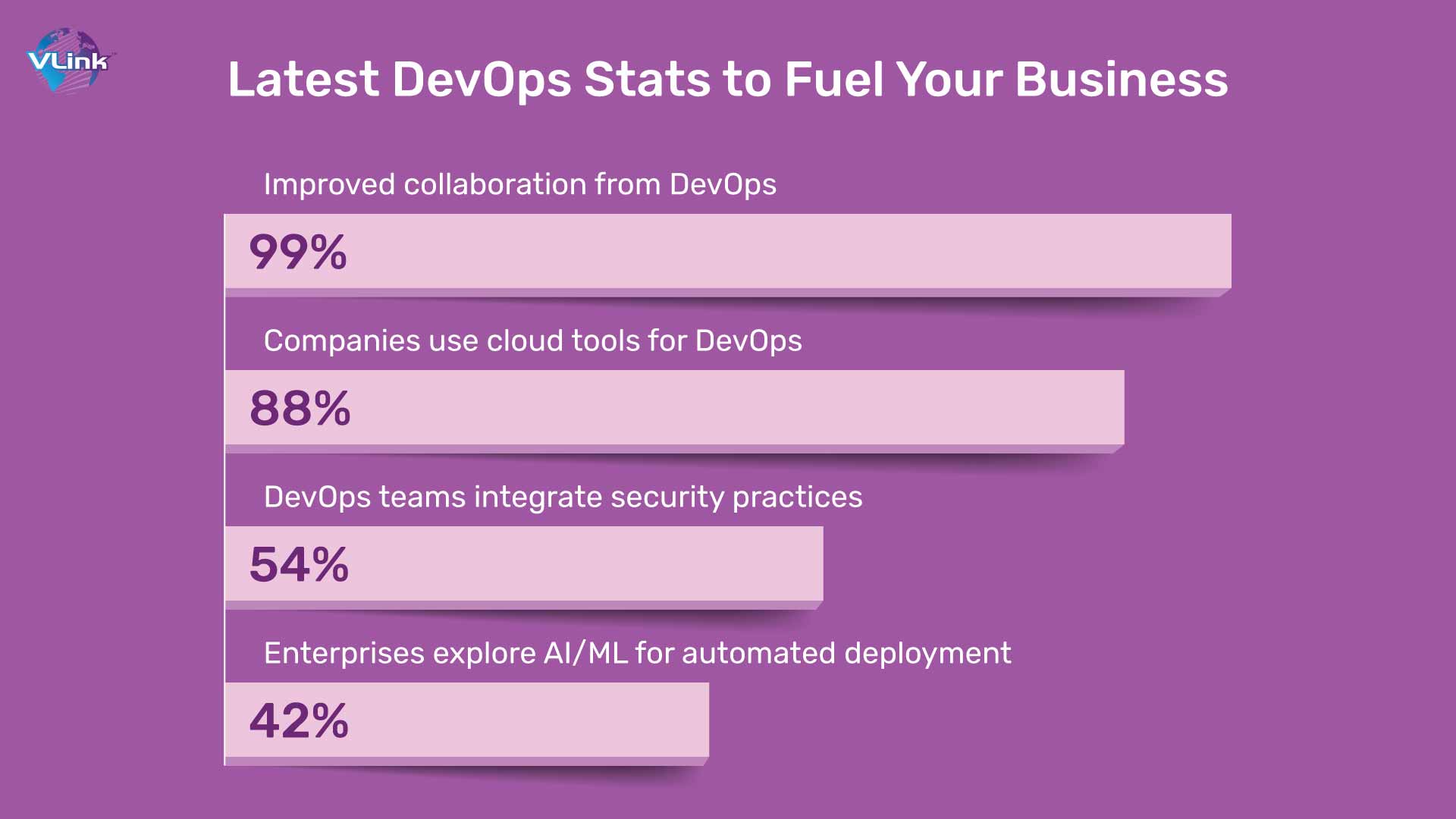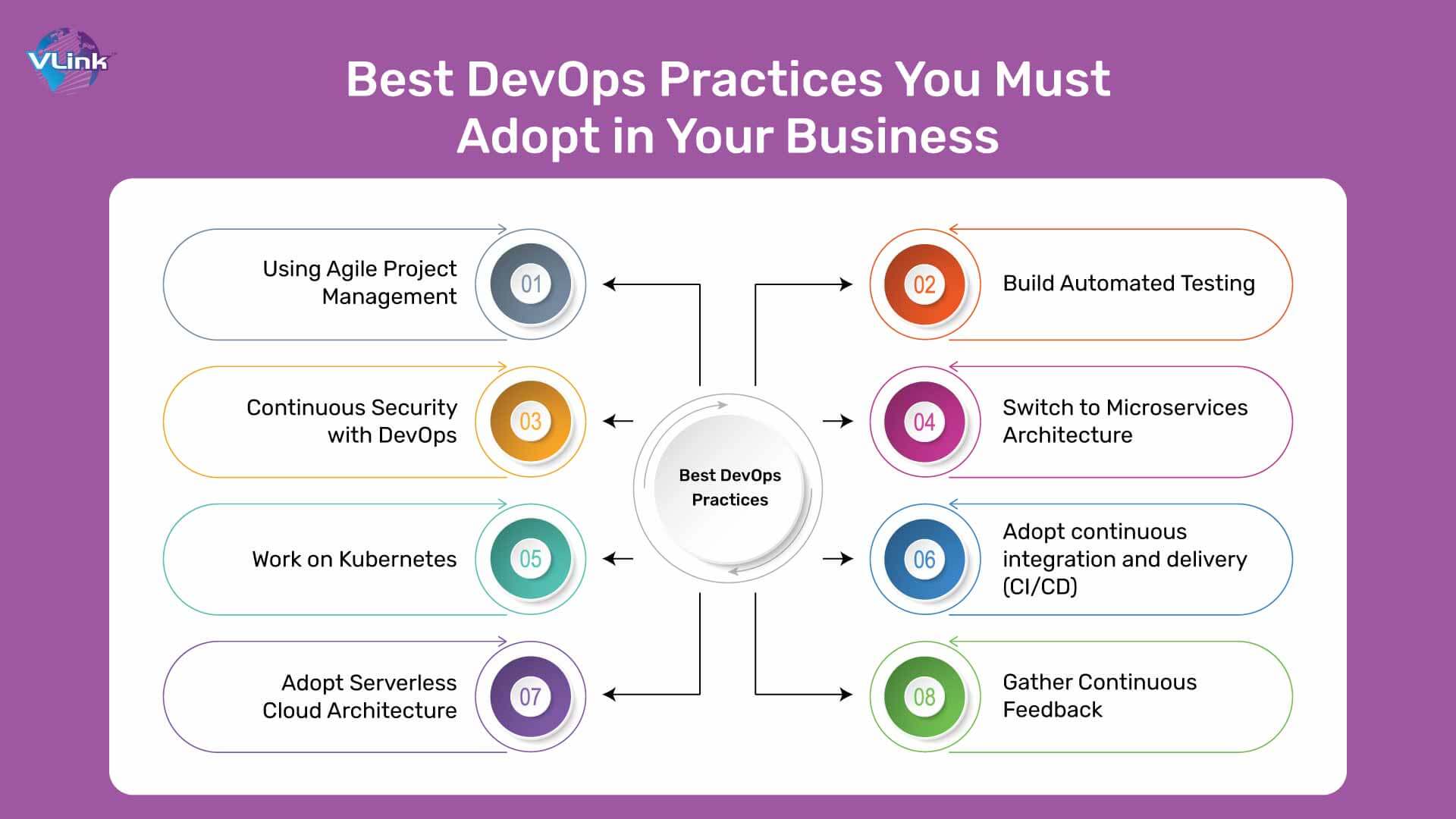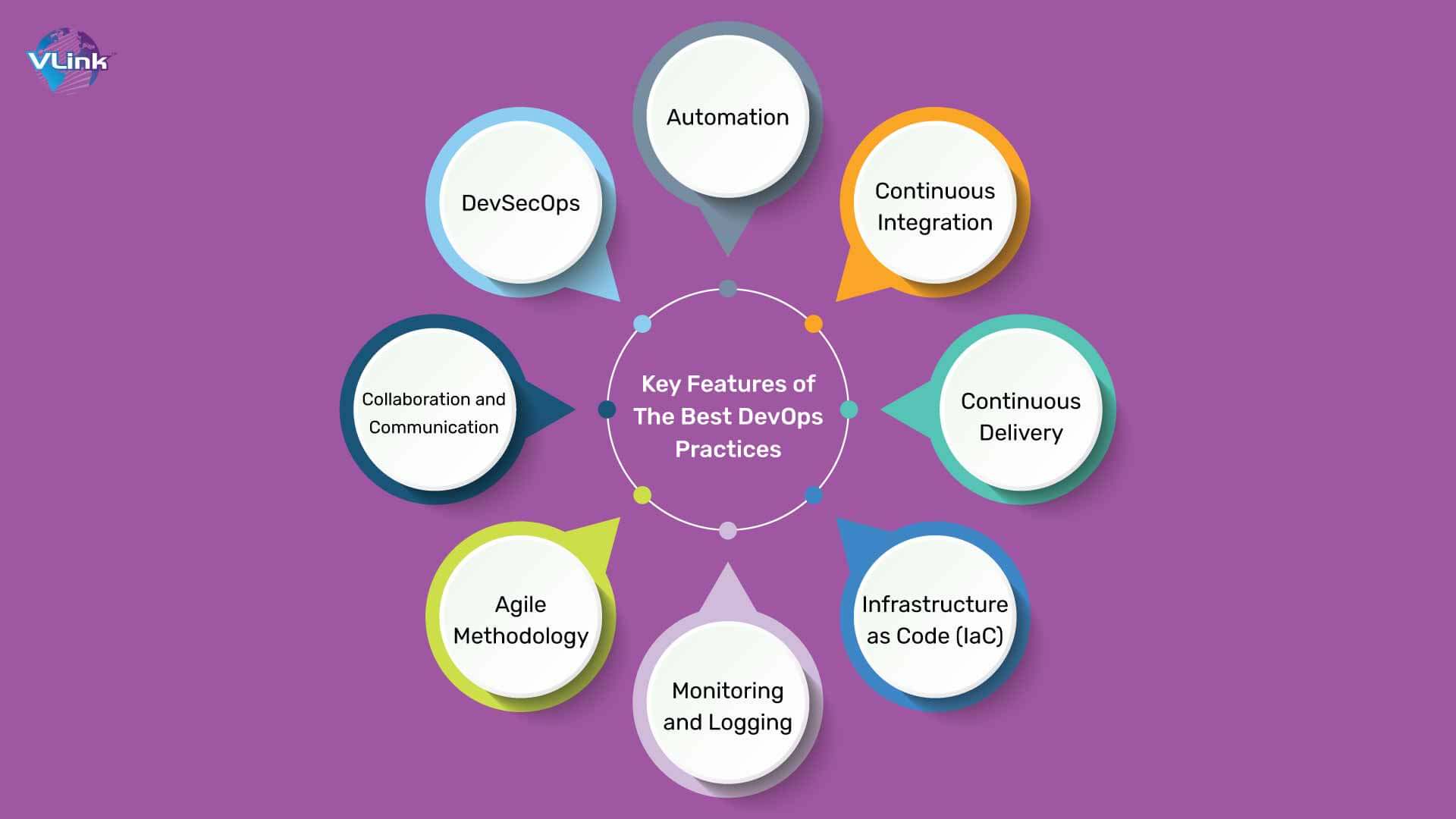If you are tired of slow deployments, clunky collaboration and frustrated stakeholders, it's time to implement DevOps best practices. It helps companies in a fast and efficient development process for deploying their products and services online for a successful business. In addition, DevOps minimizes complexity, frustration and inefficiency in teams.
According to a Stack overflow developer survey, around 80% of respondents believed that DevOps is essential for a successful business. Here are a few stats on DevOps:

Make sure you hire DevOps automation engineers for a complete software development cycle, from execution to delivery to support and maintenance. In this blog, we will explore the best DevOps practices to streamline your development pipeline in 2024.
Let's first start with the issues DevOps can address:
What Issues Can You Address with DevOps?
Here are some of the issues DevOps can resolve:
- Speed up time to market
- Increase software quality
- Reduce cycle times through automation
- Increase customer happiness
DevOps practices can also improve communication, automation, and measurement.
8 Best DevOps Practices You Must Adopt in Your Business

#1 - Using Agile Project Management
It's intriguing how Agile and DevOps complement each other. Surprisingly, Agile methodologies like Scrum can transform team dynamics, shifting from ongoing challenges to fruitful collaboration.
Agile teams adapt Scrum fundamentals, continuously improving efficiency to meet evolving business needs. Integrating Agile and DevOps can optimize development, ensuring dependable, scalable, and maintainable products.
#2 - Build Automated Testing
Developers collaborating with DevOps professionals should prioritize automating their testing procedures. Test automation not only accelerates DevOps projects and enhances pipeline capacity but also identifies core issues effectively. When you hire test automation engineer, product launches become faster, while continuous testing minimizes human errors.
By leveraging automation, DevOps teams streamline and expedite repetitive testing tasks, ensuring consistent reliability throughout the testing process. Thus, optimize your approach with QA software and testing services.
#3 - Continuous Security with DevOps
DevSecOps enhances an organization's ability to deliver apps and services while upholding security standards rapidly. It encompasses a blend of practices, cultural values, and tools that integrate software development (Dev), IT operations (Ops), and security (Sec).
This approach commences with implementing secure development lifecycles and predefined security protocols for developed applications and services and culminates in the automation of security measures for streamlined operations.
For instance: Allianz
It's an international insurance company that faces challenges regarding security and DevOps. To address these issues, the company initiated a shift in its internal security culture by engaging all stakeholders. It provided training for security professionals and empowered engineers with security knowledge and automated tools to identify and rectify code vulnerabilities independently.
#4 - Switch to Microservices Architecture
The emergence of microservice architecture stems from a collective set of DevOps principles pioneered by companies such as Amazon, Netflix, SoundCloud, Facebook, Google, and others. Initially, these organizations operated with monolithic systems but gradually transitioned to decomposed services interconnected through RESTful APIs and various network-based messaging protocols, laying the groundwork for microservices-based architecture.
In the realm of DevOps, microservices architecture fosters flexibility, streamlines processes, and enhances productivity and application quality. This approach facilitates the development of cloud-native applications capable of scaling to meet diverse user demands.
For instance, consider the airline industry's service scenario, particularly the booking process. This process is segmented into distinct tasks, including inventory adjustment, seat allocation, fare calculation, timetable lookup, reward management, and customer updates, exemplifying microservice design principles.
#5 - Work on Kubernetes
The central question revolves around how Kubernetes enhances DevOps practices. Kubernetes helps engineers effectively communicate their dependencies to IT operations. So, it reduces workload and resolves inconsistencies across multiple environments. This practice empowers engineers to fulfil client demands by leveraging cloud resources for various operational applications.
In addition, Kubernetes simplifies container-related tasks, including horizontal auto-scaling, rolling upgrades, and canary deployment, thereby streamlining DevOps Managed Services' pipelines for development, testing, and deployment.
For instance, Pinterest leverages Kubernetes to devise robust fail-safe strategies and expedite project deployment. With Kubernetes, the team can reclaim over 80% of its capacity during off-peak times, showcasing its efficiency in resource management.
#6 - Adopt Continuous Integration and Delivery (CI/CD)
A CI/CD pipeline's main aim is to mitigate the risks of deploying software into production. The effectiveness of DevOps heavily relies on the adept utilization of automation technologies by the development team, as productivity is intricately linked with DevOps automation capabilities.
One of the critical responsibilities of DevOps managers is to support the development of a release pipeline, which delineates the path that a piece of code or feature must traverse from a developer's local environment to production.
For example, upon transitioning to Amazon Web Services (AWS) cloud, Amazon empowered DevOps architects to scale capacity, reduce server costs, and implement continuous deployment procedures. This enables any developer to seamlessly deploy their code to the required servers at their discretion.
#7 - Adopt Serverless Cloud Architecture
When evaluating any serverless service, there are limited opportunities to segregate development from operations, necessitating a cloud-based operational environment. DevOps steps in to bridge this gap by advocating for the integration of operations and development, particularly in the context of serverless deployments.
With a serverless architecture, the distinction between engineers and cloud operational developers is blurred, as their roles overlap, embodying the core tenets of DevOps. This convergence leads to streamlined operational and development processes.
For instance, Azure serverless leverages Azure API Management, which can be secured, published, transformed, maintained, and monitored with the assistance of a cloud DevOps engineer. Similarly, DevOps AWS tools automate manual tasks, empower engineers to manage DevOps processes effectively and assist teams in navigating complex environments.
#8 - Gather Continuous Feedback
In the dynamic realm of software engineering, receiving timely and accurate feedback from stakeholders, end-users, and customers is paramount. This ongoing feedback loop enables teams to detect any deficiencies in their processes or products early on, facilitating swift iteration and enhancement.
Adhering to DevOps best practices entails establishing robust channels for collecting feedback using various methods such as usability testing, surveys, and user analytics. These insights empower teams to make informed, data-driven decisions, prioritize tasks, and refine their workflows to deliver optimal value to customers.
In addition, continuous feedback aids teams in promptly identifying potential issues or bugs in the software. This proactive approach enables them to address these issues before they escalate into more significant problems that could disrupt business operations.
Key Features of The Best DevOps Practices

How Much Does It Cost to do DevOps Practices?
The cost of implementing DevOps practices varies depending on factors like company size, existing infrastructure, and chosen DevOps tools. Initial setup costs may include investments in automation tools, training, and infrastructure upgrades.
Ongoing expenses typically involve maintenance, monitoring, and cloud service fees. While DevOps adoption can lead to long-term cost savings through improved efficiency and reduced downtime, exact costs vary and require careful consideration and budget planning.
Implement DevOps Best Practices with VLink!
In today's rapid and fiercely competitive digital environment, businesses recognize the significance of embracing DevOps best practices to boost efficiency, quality, and agility in software development and delivery.
Opting for a reputable DevOps consultancy such as VLink and integrating cloud DevOps automation solutions enables organizations to elevate product quality, customer satisfaction, and overall business success. This transformative journey empowers teams to perpetually enhance, adapt, and deliver exceptional value to stakeholders.
At VLink, we comprehend the challenges organizations encounter during DevOps implementation and boast years of experience aiding companies in constructing successful DevOps pipelines. Our team of specialists offers tailored training programs to equip your workforce with the requisite skills and expertise to utilize DevOps tools and methodologies proficiently.
Additionally, our consultancy services facilitate a seamless cultural transition towards a collaborative and continually improving mindset. In addition, hire our DevOps engineers who are adept at designing and implementing a cost-efficient, scalable, and secure infrastructure that aligns with your DevOps objectives.
For more information about DevOps practices, you can contact us today!
Frequently Asked Questions
DevOps streamlines software development by integrating development and operations teams, fostering collaboration, automation, and continuous delivery. It accelerates software delivery cycles, improves quality through faster feedback loops, enhances team productivity, and increases overall efficiency by reducing manual errors and downtime, ultimately leading to higher customer satisfaction.
DevOps is a cultural philosophy and set of practices rather than a strict methodology or framework. It emphasizes collaboration, automation, and integration between development and operations teams for efficient software delivery.
Docker in DevOps is a containerization platform that allows developers to package applications and their dependencies into standardized units for easy deployment, scalability, and portability across different environments.














